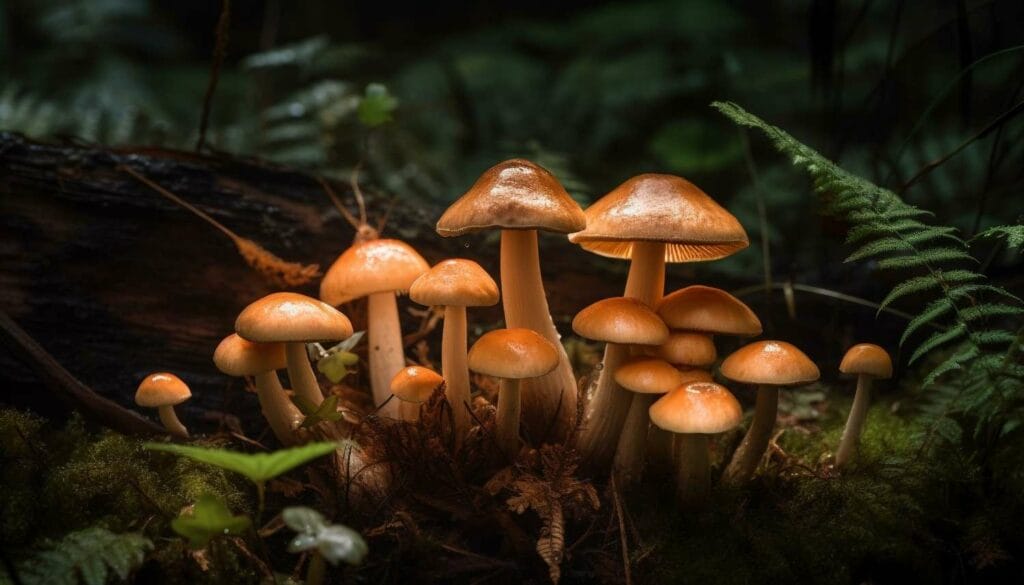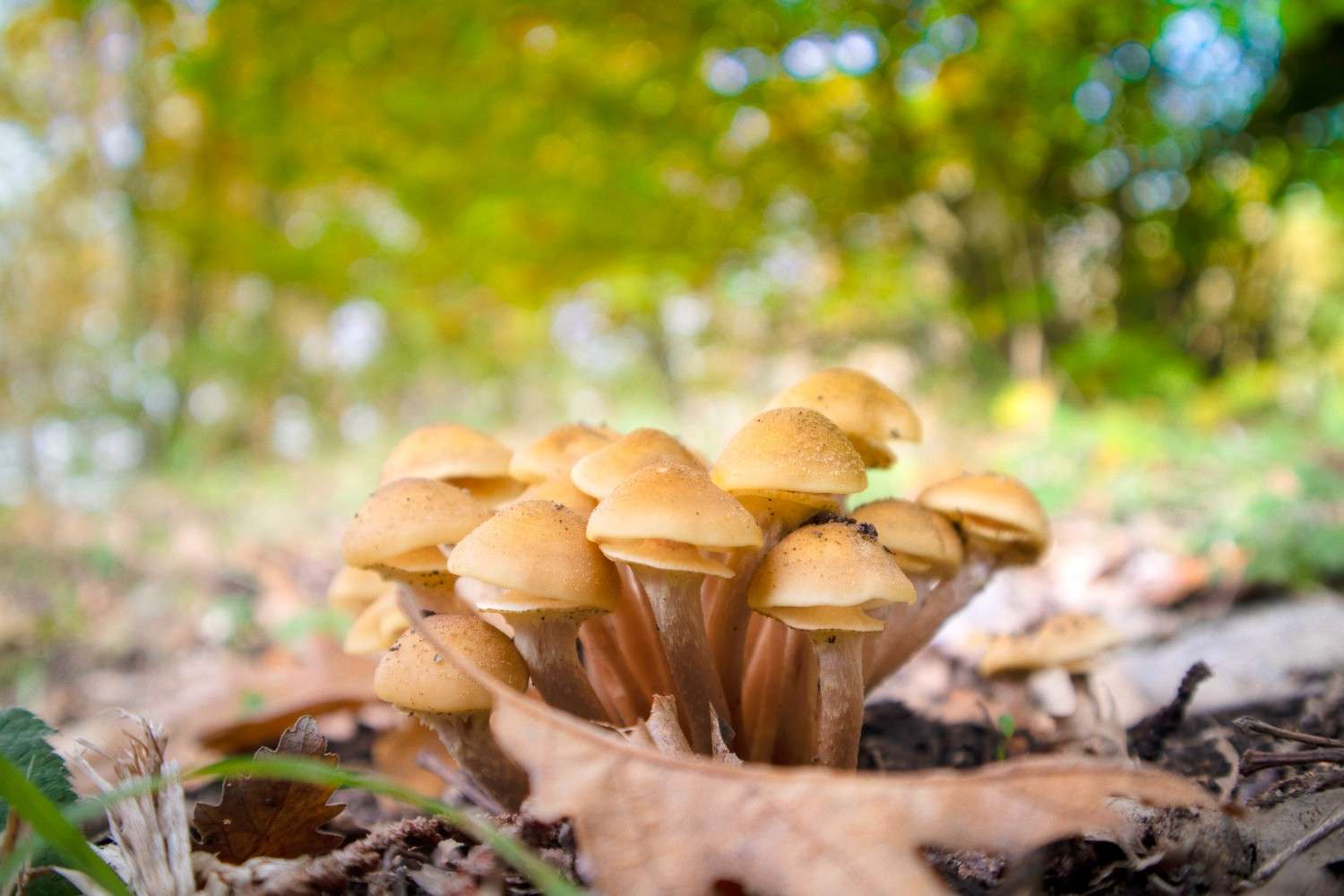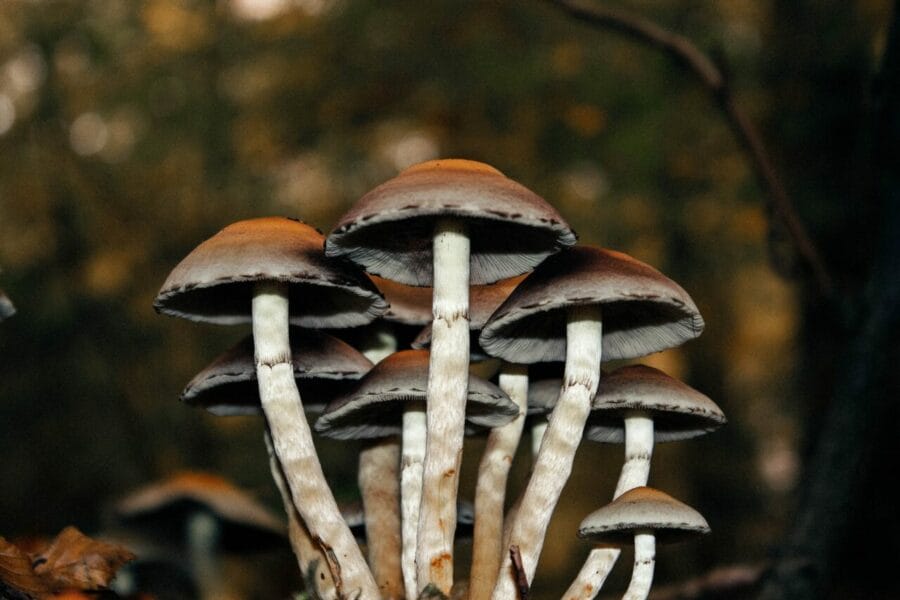Shrooms Canada has become popular in the mainstream, drawing significant investment for its potential in the field of medicine, fueling scientific research, and contributing to increased public acceptance.
Two contemporary research studies emphasize the prevalent use of psilocybin mushrooms as a psychoactive substance.
Eric Leas, an epidemiologist at the University of California, San Diego, noted a surge of 1,250% in internet searches relating to microdosing since 2015, with psilocybin overtaking LSD in 2019. Furthermore, a study by the RAND Corporation indicates that around 3% of Americans – approximately 8 million adults – used psilocybin last year, earning it the title of the most popular hallucinogen in 2023.
Let’s explore this global interest in shrooms.
[toc]
What is Microdosing?
Psychedelic microdosing involves consuming a minimal amount of a hallucinogenic substance to achieve a positive mental effect without experiencing a full psychedelic trip. It usually involves taking just 10-20% of a dose that would trigger a psychoactive effect. The goal is to consume such a small quantity of a psychedelic substance that it doesn’t significantly affect one’s consciousness.
Historically, microdoses of magic mushrooms and peyote have been used to ease physical ailments and enhance wellbeing. During the 1960s, the practice of microdosing expanded to include LSD as people aimed to boost cognitive functions and creativity.
Today, the practice of microdosing also includes substances like MDMA, Ritalin, cannabis, and ketamine, which can cause hallucinations at high doses, but do not induce a psychedelic experience when taken in microdoses.
Distinguishing Between Microdosing and Full Dose Experiences
| Aspect | Microdosing | Full Dose (Psychedelic) |
| Dosage | 0.1 to 0.3 grams of dried mushrooms | 1 to 3 grams or more of dried mushrooms |
| Frequency | Regular (e.g., every few days) | Occasional |
| Duration of Effects | Negligible disruption to everyday tasks | Altered state persists for 4-6 hours |
| Sensory Impact | Experiencing hallucinations (altered or non-existent sensory perceptions), enhanced emotions and sensory experiences (intensified colors, amplified sounds), and synesthesia (like “visualizing” sounds or “hearing” colors) | Minor sensory alterations, subtle mood and perception improvements, and heightened concentration and creativity |
| Physical Impact | Bare minimum to no physical effects | Increased energy and heart rate, and sensations of nausea |
The Rise of Psilocybin Microdosing
About 50% of the individuals who consumed psilocybin in the previous year chose microdosing, a trend that is gaining traction among tech industry professionals and suburban mothers. Microdosing entails taking 1/10 to 1/20 of a typical dose. The majority of microdosers use psilocybin only once or twice a year, with a small 11% using it more than six times. Over half prefer consuming whole or dried mushrooms, while others opt for processed forms like chocolate bars or teas.
The surge in interest in microdosing is connected to evolving laws related to cannabis and psychedelics. States including Oregon and Colorado, where plant-based psychedelics are decriminalized, display the greatest interest in microdosing.
Studies suggest an increase in psilocybin consumption, especially in nightlife settings, where it competes with drugs such as ecstasy and ketamine. Research estimated that 5.5 million adults consumed hallucinogens in 2019, with a significant rise in LSD use.
What’s Driving the Growing Microdosing Trend?
The RAND survey pinpointed the top three reasons Canadians use psilocybin:
Enjoyment and Social Interaction
Many Canadians indulge in these hallucinogenic mushrooms for fun, seeking a unique, shared experience. The sense of community that comes from consuming psilocybin at group events or social gatherings adds to its appeal.
Mental Health
A significant proportion of users turn to psilocybin for its potential mental health benefits. In fact, an observational study in Nature-Scientific Reports Trusted Source suggests that microdosing psilocybin mushrooms
Psilocybin has been shown to help alleviate mental health conditions. Studies have found that individuals who microdose show improved symptoms of depression, anxiety, and stress compared to those who do not.
Psilocybin Extracts
Psilocybin extracts are a concentrated form that provides a more uniform and precise dosage.
- Method of preparation: Psilocybin is extracted from the mushrooms using solvents such as alcohol.
- Dosage: Extracts are measured in milligrams, ranging from 1 to 10 milligrams per microdose.
- Method of intake: It can be consumed directly, mixed with beverages, or encapsulated.
Psilocybin Edibles
Edibles provide an innovative approach to microdosing by incorporating psilocybin into food items such as chocolates, gummies, or other treats.
- Method of preparation: Psilocybin is mixed into edible products during their creation or cooking process.
- Dosage: Each edible contains a specific amount of psilocybin, ensuring consistent dosing.
- Method of intake: Edibles are consumed like any other food, often featuring a pleasant taste to mask the flavor of mushrooms.
Psilocybin Tinctures
Tinctures are liquid extracts that offer flexible dosing and quick absorption.
- Method of preparation: Psilocybin is extracted into a base of alcohol or glycerin.
- Dosage: Tinctures are measured in drops or milliliters, allowing for exact control over the amount consumed.
- Method of intake: Tinctures can be taken sublingually or mixed into a drink.
Psilocybin Teas
Teas provide a traditional approach to consuming psilocybin, delivering a soothing and relaxed experience.
- Preparation Method: Dried mushrooms are steeped in hot water, often with added herbs or flavors to improve the taste.
- Dosage: The strength of the tea depends on the amount of mushrooms used. Normal Microdoses usually vary between 0.1 and 0.3 grams.
- Consumption Method: It can be enjoyed like any other herbal tea.
Available Products at Shrooms Canada
| Product | Type | Dosage | Onset Time | Duration | Effects |
| Trans Envy Magic Mushrooms | Psilocybin Mushrooms | Usually, 0.1 to 0.3 grams per microdose. | 30-60 minutes | 2-4 hours | Enhances mood, triggers visual alterations, encourages introspection |
| Kind Stranger – Microdose Capsules | Psilocybin Capsules | One capsule equals 250 mg (15 capsules in each bottle). | 30-60 minutes | 2-4 hours | Fosters clarity, creativity, concentration, and stress relief |
Key Points to Remember
The global trend of microdosing psilocybin mushrooms, with Canada leading the way, indicates a significant change in the understanding and use of psychoactive substances. As studies continue and regulatory frameworks evolve, the potential therapeutic advantages of psilocybin may revolutionize the treatment of various mental health conditions and boost overall well-being.
Frequently Asked Questions
What are the Crucial Guidelines for Microdosing?
- Use an accurate scale if you don’t have a pre-measured dose.
- Take the first dose on a normal, relaxed day when you are in good health.
- Make sure your environment is secure and devoid of distractions.
- Follow your chosen regimen for a duration of 4-10 weeks.
- Start with a minimal dosage, adjusting as needed to achieve the desired results.
- Microdose early in the day to avoid disrupting sleep patterns.
- Initially, steer clear of alcohol and other psychoactive substances. CBD could be beneficial.
- Keep a microdosing diary to track your dosage, timing, diet, activities, and outcomes.
- Exercise patience and allow the protocol time to produce effects.
Decoding the Fadiman Protocol
The Fadiman Protocol, conceived by psychologist James Fadiman, is a microdosing strategy that recommends administering a microdose on the first day, followed by two days of abstinence. This routine lasts between 4 and 10 weeks.
The primary objective of this protocol is to ensure balanced microdosing. It helps in preventing tolerance accumulation and allows the body to recover between doses. This balance lets users enjoy the benefits of microdosing without a decline in effectiveness over time.
Unraveling the Stamets Stack Protocol
The Stamets Stack Protocol, introduced by mycologist Paul Stamets, suggests dosing for four continuous days, followed by a three-day hiatus. This protocol distinguishes itself by including supplements like Lion’s Mane mushroom and Niacin.
Lion’s Mane is appreciated for its potential to trigger neurogenesis, while Niacin is used to enhance absorption. Similar to the Fadiman Protocol, this regimen lasts for 4 to 10 weeks. The Stamets Stack’s composition is designed to boost cognitive function and support overall brain health.
Articles that might pique your interest:




